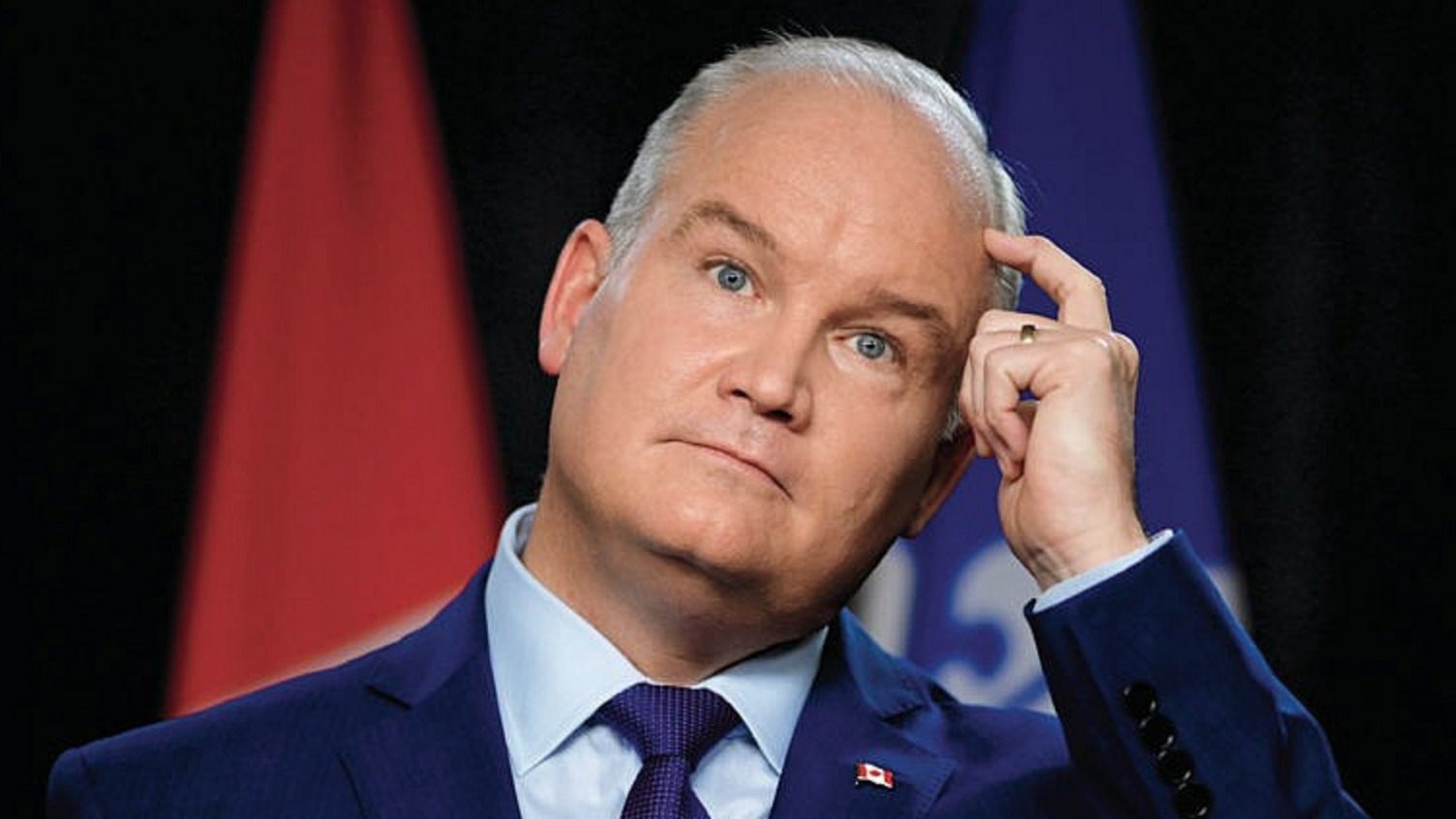It seems, when it comes to keeping his party united, Conservative Party leader Erin O'Toole will require the wisdom of Solomon.
After all, on the one hand, O'Toole wants to convince Canadians that he's "pro-choice" on the question of abortion, while on the other, he wants to keep the "pro-life" elements of his party's base loyal.
For sure, it'll be a difficult square to circle … or should that be a difficult circle to square?
Anyway, the geometry doesn't matter; what does matter is O'Toole, if he employs the right approach, can be pro-choice while keeping his Christian soldiers happily marching.
And I'm going to tell you how.
But before we get to the nitty gritty of tactics, we need to first ask ourselves why O'Toole would believe it's important for him to emphasize his pro-choice credentials?
The answer to that question, of course, can be expressed in two words: Andrew Scheer.
My point is, it's widely believed that in the last federal election voters turned against Scheer (who was then Conservative Party leader) mainly because his devout adherence to Roman Catholicism led to fears that he planned to institute a modern-day version of the Spanish Inquisition.
As one-time Conservative Cabinet Minister (and later Conservative leadership candidate) Peter Mackay so subtlety put it, socially conservative values were "thrust on the agenda and hung around Andrew Scheer's neck like a stinking albatross."
Hence, in order to avoid the political encumbrance of having a metaphorical fetid fowl dangling from his body, O'Toole is determined to brand himself as a secular, non-threatening, religiously generic, leader.
The hope behind this strategy is clear; O'Toole wants to attract new voters (especially those voters who might be socially liberal but fiscally conservative) to the Conservative camp.
Sounds like a good strategy to be sure, but the danger it poses is equally clear: by wooing socially liberal voters, O'Toole might also alienate social conservatives, people who are already at this side.
Now it should be noted that social conservatives are not nearly as powerful a political force here in Canada as they are in the United States.
I know that from personal experience.
Years ago, I was working for a guy running in a Republican Senate primary whose pro-choice stance made him a target for pro-life Christian groups, who went after him with a savage multi-media attack ad campaign.
Believe me, these Christians could brawl.
Such a thing, could not happen to O'Toole.
But even though they're small in number, social conservatives are still an important part of the Conservative voting coalition; they tend to be disciplined and passionate, meaning they can be counted upon to punch above their weight; they work hard for the party, they make donations to the party and most importantly, they get out and vote for the party.
In short, losing their allegiance could hurt the Conservatives.
That's why it'll be important for O'Toole to try his best to keep social conservatives on board, even as he's trumpeting his pro-choice views.
Fortunately for him, there's template on how he can do that.
All he needs to do is follow the example of former Conservative Prime Minister Stephen Harper.
Harper, keep in mind, was a social moderate. (Yes, I know that will shock a lot of people in the media, who kept trying to push the narrative that he was some sort of wild-eyed, religious fanatic. But I worked with the guy for five years, I know.)
As a matter of fact, during his time as prime minister, Harper did next to nothing to advance a social conservative agenda in Canada.
Yet, despite that he managed to keep social conservatives loyal.
The way he did it was easy, he simply treated social conservatives with respect.
That's to say, he never talked down to them or downplayed their values or beliefs, he never referred to their ideals as a "stinking albatross."
He even ended his speeches with the phrase "God save Canada."
And every once in a while, he threw social conservatives a tiny bone, like when he ended the policy of paying for global abortion services.
At any rate, my point is, with careful messaging, O'Toole can appeal to both social liberals and to social conservatives.
Mind you, when it comes to winning the election, O'Toole still might need a prayer or two.
Photo Credit: CBC News






